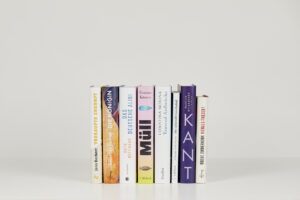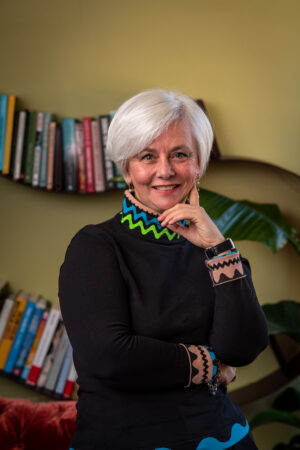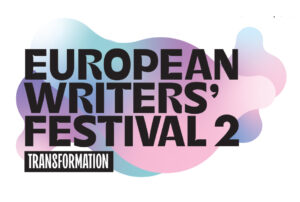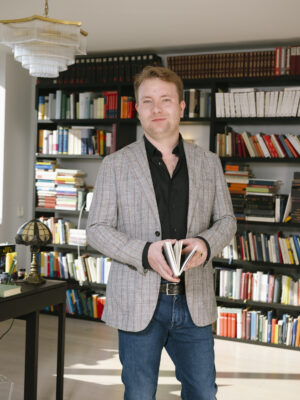In 1982 author, photographer and theatre practitioner /activist Naveen Kishore launched a series to publish Indian playwrights in English translation under the label Seagull Books. Since then, the publishing house based in Calcutta, India, has published English translations of more than 500 books by major African, European, Asian, and Latin American writers, including works by Nobel Prize winners Mo Yan, Herta Müller, Elfriede Jelinek, and Man Booker International Prize winner László Krasznahorkai.
Seagull publishes special series dedicated to a wide range of themes, including Women in Translation and Theatre and Performance, and geographical regions, including The German list, The Africa list, and Quilombola! bringing ‘inventive, provocative and unexpected voices from sub-Saharan African, French-speaking Afropean and other places’.
In 2005, Kishore launched Seagull Books London to reach a wider international readership. Six years later, in 2011, he expanded the organization further, establishing the Seagull School of Publishing with the aim of training the next generation of publishers, editors, and book designers in India. For his contribution to publishing, Kishore has been made a Chevalier de l’ordre des Arts et des Lettres (2014) by the French government and awarded the Goethe Medal from the Federal Republic of Germany (2013). In 2021 he received the prestigious Words Without Borders Ottaway Award for the Promotion of International Literature.
I interviewed Naveen recently about Seagull Books, its ethos and German-language literature. His poetic and insightful answers made for an illuminating conversation.
Last year Seagull Books turned 40, can you tell us more about the conception of Seagull Books?
Topshot, extreme close up. A hand, feverishly sketching, moving, flying (as you pull back slowly to take more into the frame) over a sheet of paper. Now you can see what’s taking shape on the paper: human bodies forming a theatre image, a series of movements which (as you shift gaze to a point of view shot over the shoulder of the person sketching) are being performed by a group of young theatre actors in a circular space (you pull back slowly into a long shot) bounded by the bodies of an audience watching intently. It is early 1982. A grassroots theatre festival. Calcutta.
A desire to document a dynamic theatre movement jump-started an independent publishing house called Seagull Books for drama film art and culture four decades ago.
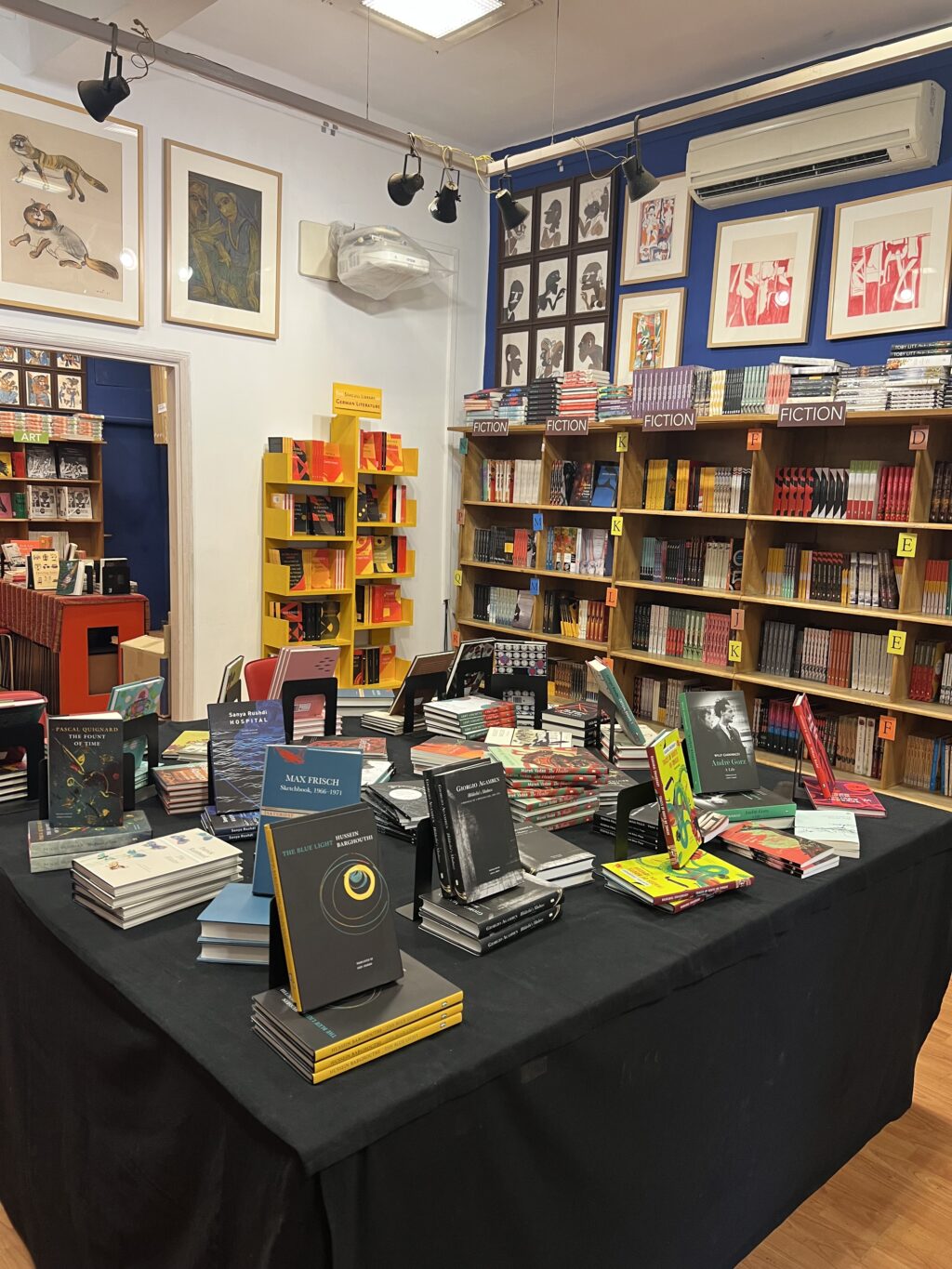
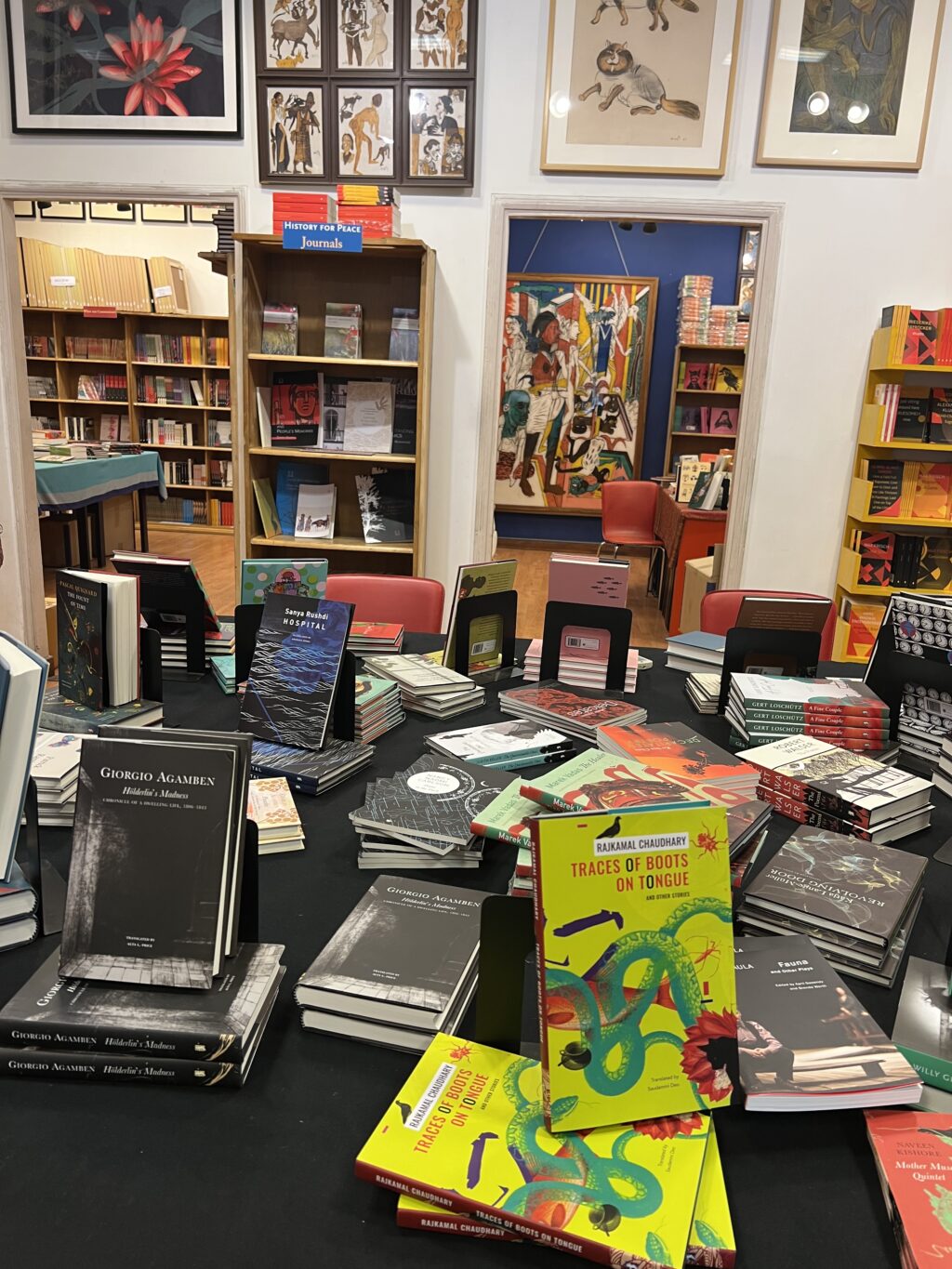
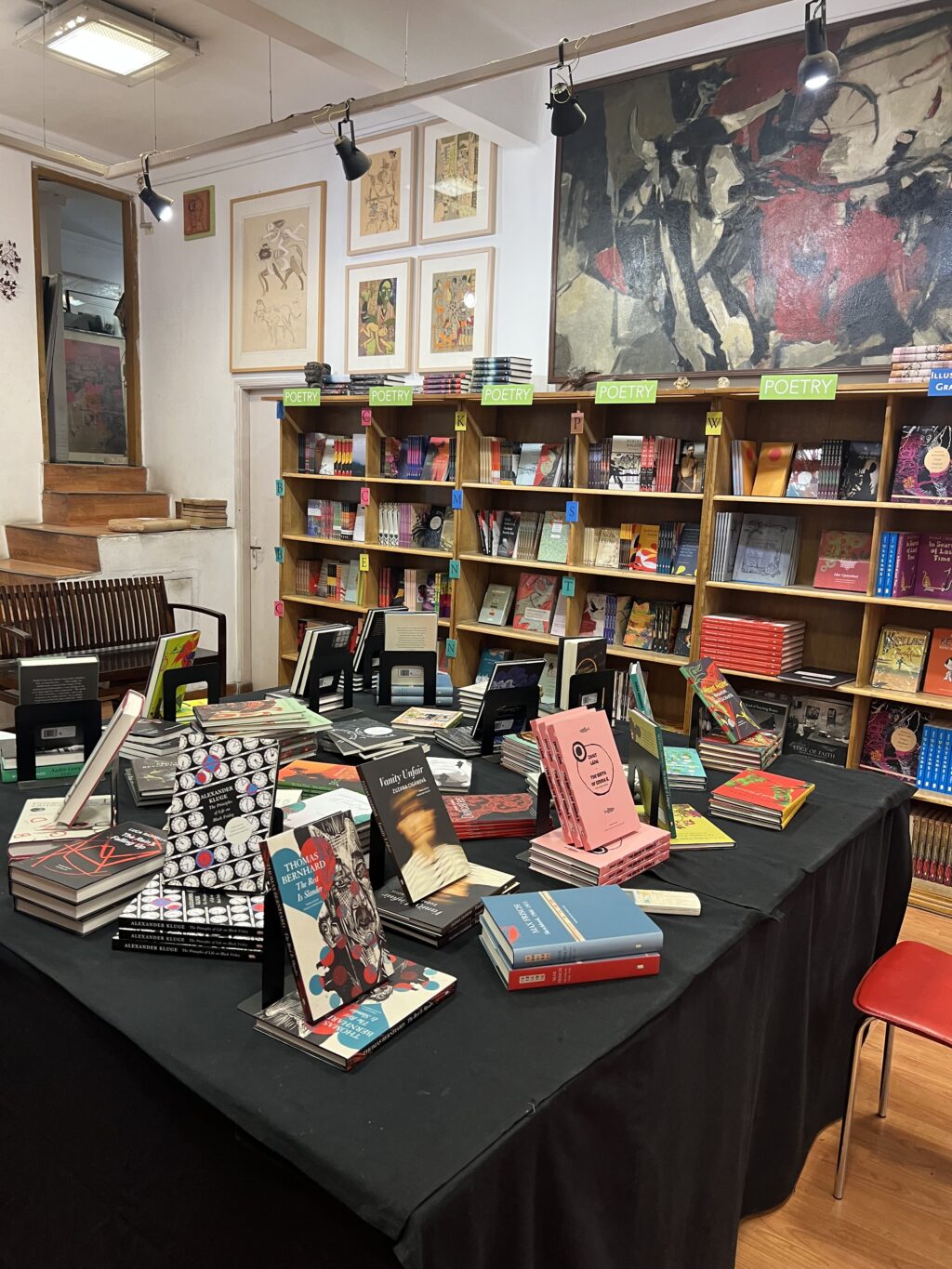
How is Seagull structured? Can you tell us a little about the team?
At first glance it looks like the opposite of structure. The second glance confirms it! Flippancy aside there is method in this so called ‘lack’. Let me elaborate. There are five of us who do almost everything. (Barring accounts and support systems for packing shipping logistics and a bookstore!) In-house editing, page setting, designing. Our editors are trained to set their own pages. The team is led by Sunandini Banerjee our Editorial Director who is also the principal designer of our aesthetic; Bishan Samadar, Editor, photographer, designer; Sayoni Ghosh. Diven Nagpal. In other words, a few good people doing many things opposed to many people doing one specific task.
I read elsewhere that Seagull Books is known for making the invisible visible and admitting the inadmissible. How do you manage to follow your philosophy in sometimes politically turbulent environment?
By focussing on the doing and not second guessing ‘the times’. Often publishing tends to get ‘anxious’ in this cannibal time. One is in a constant state of ‘fear’. Pre-emptive antennas out for ‘this may happen and so we need to be careful with what we publish’. A kind of censorship of the Self is the new normal. We try to cope with the ‘turbulent’ by publishing what needs to be shared with a readership equally worried about the times. To inform. Document. Bear witness. Whatever be the label the important things is to participate and signal our intent through our work our content our books.
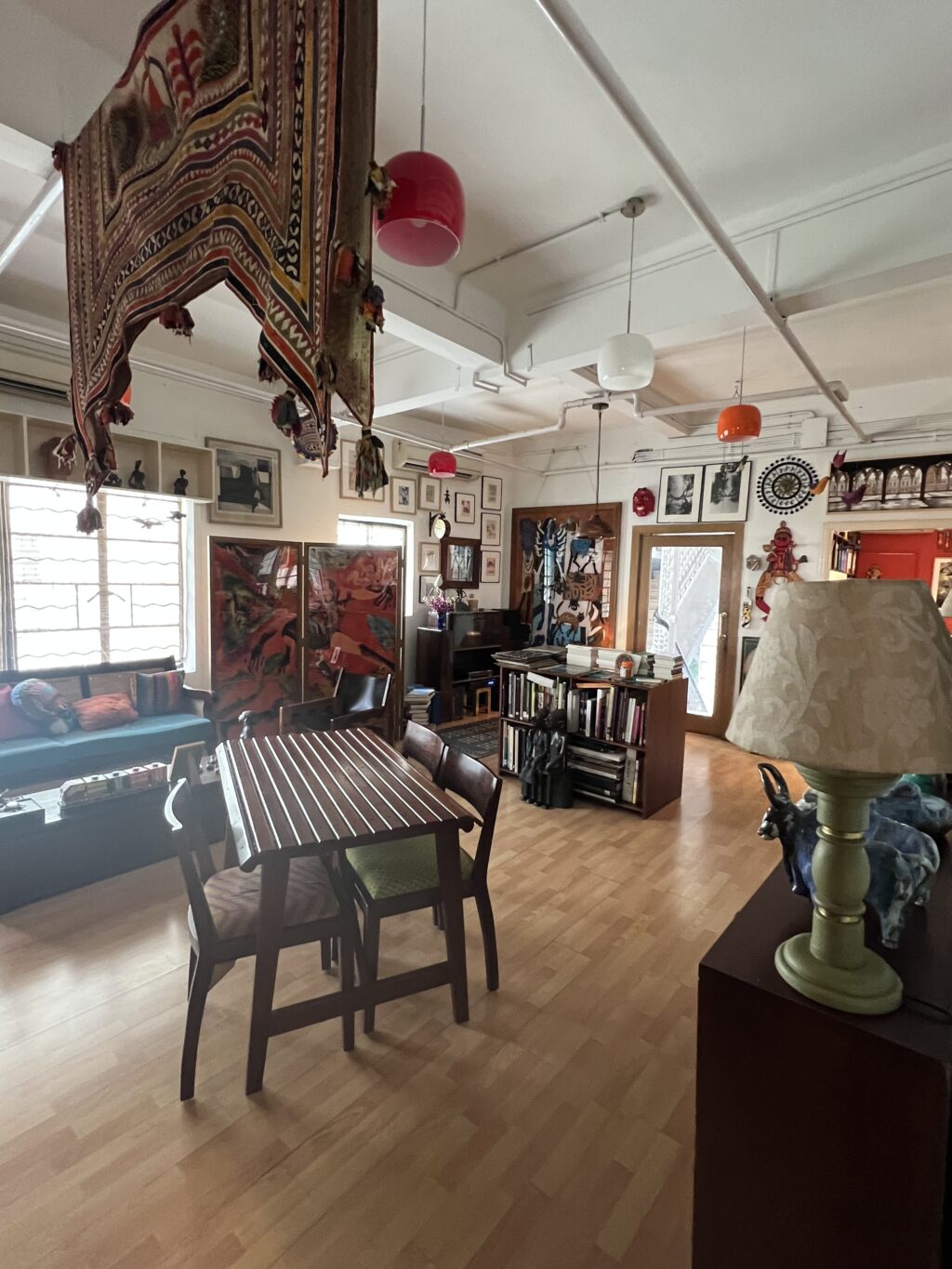
We fall back on the intuitive. Not just in the way we traverse learning and acquired knowledge but also in what and how we experience.
Naveen Kishore
I never subscribed to labels; they are all temporary phenomena. Nor did I ever have faith in one ‘grand order’ imposing itself on our world. So, yes, when all that we grew up believing in slipped into a ‘fluid’ state and turned into something else, the philosophies we espoused also needed to be packed away and be replaced by fresh thinking. We fall back on the intuitive. Not just in the way we traverse learning and acquired knowledge but also in what and how we experience. This is not a position of defeat.
The cynicism we so easily accuse ourselves of is actually a virtue. The cynic questions. As do publishers who feel compelled to contribute to the intellectual climate of the world we inhabit. Often, inadvertently. Sometimes out of mistrust. But always from a position of the humane. I speak of the cynical as a challenge to the status quo. One often rues the fact that the science—or if you will, the art of questioning—is no longer in vogue. It is in danger of dying out. In this ‘nameless’ time, the time we inhabit is the time that in turn devours us, reduces us to a state of ‘loss’. Strips us of our ability to question.
So, yes, ‘making the invisible visible and admitting the inadmissible’ may be interpreted as giving ‘vocabulary’ to unheard voices. Which is what we aspire to do.
Can you tell us more about the Seagull School of Publishing?
A three-month course in publishing, run entirely by industry professionals. Inspirational life stories. Hands-on training. Lots of assignments. Online interactions with faculties from across the world. Understanding cover design and layouts, copy-editing and proofreading, tips and tricks of sales and marketing and buying and selling rights, across territories and languages. An intense learning experience that will enable you to work in publishing anywhere in the world. Counselling potential publishing professionals is a continuous process at SSP. Former graduates of SSP are regularly counselled and advised by the faculty. References are always provided for those seeking employment, and guidance offered to those seeking to start entrepreneurial ventures. SSP is dedicated to helping such (and other) graduates in their efforts at networking in the publishing world. This mode of functioning has always been a way of being at SSP, and at Seagull as a whole.
While in-person classes have a certain palpable energy, we learned that moving the course online had distinct advantages, which many of the students expressed in conversation with us.
Since they did not have to physically attend classes in Kolkata, students from outside the city saved a lot of time and resources by logging in to attend classes from the comfort of their homes. Those who are already employed and those who have family responsibilities did not have to compromise on those duties. By making the course entirely online, we hence were able to reach out to a larger, more diverse group of students. The online course was especially inclusive of those who could not afford to live in a different city for three months as well as those who are caregivers to their children and/or parents.
Even though, fortunately, the pandemic no more affects social or educational gatherings, we have continued to conduct the course virtually. From our experience, an online course is accessible to a larger body of students, making it geographically and socioeconomically more diverse.
We were at first apprehensive that there would be a sharp fall in the number of applicants given the uncertainty and the general economic hardship created by the pandemic. But the response we received from applicants to the three-month online course was excellent. We had to be very careful in selecting the 40 students for the course since the number and quality of applications far exceeded our expectations.
SSP’s mandate has been to bring diverse voices into the field of book publishing. By attracting students from different corners of India, and also the rest of the world, SSP has satisfactorily displayed its commitment to this cause.
Looking into your German list, it is clear that you publish a broad range of authors and genres (Alexander Kluge, Christa Wolf, Max Frisch and Duerrenmatt as well contemporary authors like Gert Loschuetz and Melinda Nadj Abonji). How did you discover the first German titles you published?
Not sure it was ‘discovery’. As in something new or a thunderbolt out of the blue! More a quiet sense of the ‘already present’ a kind of internal déjà vu. I grew up reading translated literature from Europe. This was before—what I sometimes call—the ‘Vast Invasion of the Number-Crunchers’ that laid waste a treasure trove of literature in translation because in their opinion ‘translations do not sell as much’. We all know this already. All I did from 2006 onwards was to return to the books that were patiently waiting to be translated. From the German, yes but also from across other European languages too. It is wonderful therefore to see that this has in some tiny way led to a resurgence of translated literature over the last decade in particular.
How do you acquire titles for the German List? Do you accept proposals directly from translators?
It’s a combination of things. Yes, from translators for sure but also from the publishers we work with. Our own instinct. Often, we reach out to translators when we receive information about books. Above all intuition.
Are there any small independent presses that you like to work with?
We are happy to work with many presses big and small. It all depends on the books we select, I guess. Our German list began with Suhrkamp who are now a close and firm friendship. And Hanser. But yes, many smaller independents too.
For us literature that resonates across cultures as the German books we publish clearly do is all that matters.
Naveen Kishore
Why do you think so many books from German speaking countries are published in translation?
Never thought of this. For us literature that resonates across cultures as the German books we publish clearly do is all that matters.
There will always be rich literature. What needs to be safe-guarded is that we don’t lose out to perceived market-trends.
Naveen Kishore
What do you see as the future for books from German speaking countries translated into English?
As long as the writing happens the books will get read. The ‘future’s too hard to see’ as the song goes! In any case this is not important. There will always be rich literature. What needs to be safe-guarded is that we don’t lose out to perceived market-trends. This happens very often. In fact, it is happening even as we exchange our thoughts you and I!
Have you noticed any new trends developing in German-language literature over the years?
A slight concern voiced not just by me but also by editors in Germany who worry about the leaning towards the more popular kind of writing that doesn’t sit well with the more literary traditions of German thought and writing we have grown into admiring. But I will add that this is just my intuitive feeling. Having said that I will wish to add that we are continuing to focus on the what I earlier called ‘the literature of resonance’. One that crosses borders—not just the geographical ones but also those that appeal to cultural sensitivities the world over. You may wish to ask our publisher friends in Germany (and rest of Europe?). It would be interesting to hear their own reflections.
Do you have forthcoming German-language titles that you are particularly excited about?
For now, focussing on the Frisch Bachmann letters! And lots of Grunbein! Even as we continue to do some amazing new commentaries on the state of the world by Alexander Kluge. There are a host of other new books by younger German writers that excite us!! Long this list!
Books from Seagull Books always have inspiring cover designs. Can you tell us about the wider context of the art and craft that goes behind the scenes?
This needs a book length response because when one looks at the art of Sunandini Banerjee our Editor and Chief Designer over the last 23 years one is in awe. The fact that most design theories fall by the wayside when confronted with her inspiration is to put it mildly. A lot goes on behind the scenes. Or rather behind the eyelids of our ‘Seagull aesthetic’! Style of the narrative, context, location, politics, philosophy, that works across cultures. All one can say is that it is inhabited by Sunandini’s art. The rest is for the world to see.
One moves backwards and forward in time to create. No seeking of solitude. An ideal place or moment. One creates—writing photography publishing— in the daily chaos of all of one’s many lives.
Naveen Kishore
Can you tell us a little bit more about your own writing and your life as an artist?
I write every day. Been doing so for a very long time. Over 11 years. A dailyness that is normal for most musicians. One writes. Over time the writing if done like one’s daily Riyaz (practice) grows into something beyond the dailyness that labels imply. All my words grieve. But not without hope. I do not set out to seek the dark. It just inhabits my writing. So be it Knotted Grief or the new Mother Muse Quintet the mother is a central figure. Not only personal and nurturing but also political and in a constant state of violation. Sometimes by people close to one and at others when nations turn rotten. Writing even as a certain compulsion. Perhaps memory finding a point to explore itself? Six decades of unknowingly leaving a paradise and returning to the nightmare it had metamorphosed into. Kashmir. And of course, the affections of growing comfortable with grieving—both in the way you and I do these days when we speak of land nation woman man. The human condition. And the intimate one. The one we sometimes call loss. Losing love in the form of sister mother lover. ‘Comfortable’. ‘Affections’. I think what I am attempting to suggest is that this is our life. Our lives. And therefore, the grief is not entirely without hope. My poems are filled with hope. And not as a didactic message. It just is. An intuitive arriving at hope through this ‘condemning’ one speaks of. All of the things I do or attempt to do be it the theatre lighting or the photography or design or publishing informs and merges with the writing. These are not compartmentalized processes. Fluidity between the forms. Intuitive. Yes, if the one thing that is common, I would suggest it is the intuition that I have learnt to trust. There is only the writing. No process. Life time circumstance all combine as they unfold in the present and memory that keeps turning to the erstwhile helps one write. One moves backwards and forward in time to create. No seeking of solitude. An ideal place or moment. One creates—writing photography publishing— in the daily chaos of all of one’s many lives.
Thanks for speaking to us Naveen!
To browse Seagull’s German List, click here
All the photos which accompany this article have been supplied by Naveen Kishore.
Funding for authors from Germany
Costs of translation into English are supported by our partner the Goethe-Institut.
Funding for authors from Austria
Costs of translation into English are supported by our partner the Federal Ministry for Arts, Culture, the Civil Service and Sport.
Funding for authors from Switzerland
Costs of translation into English are supported by our partner the Swiss Arts Council Pro Helvetia.




